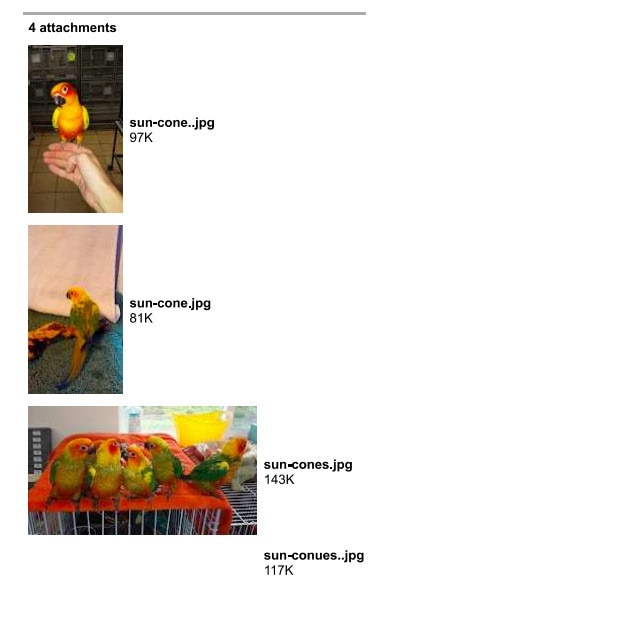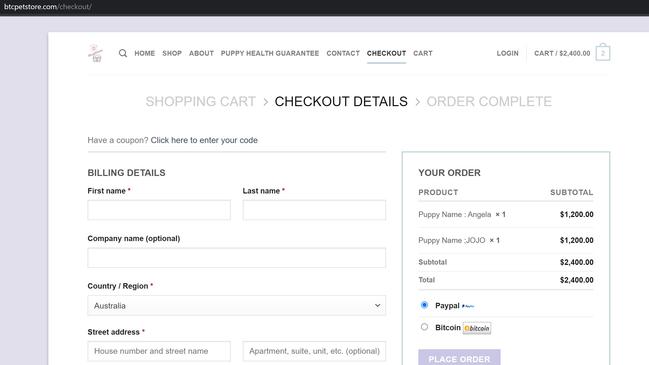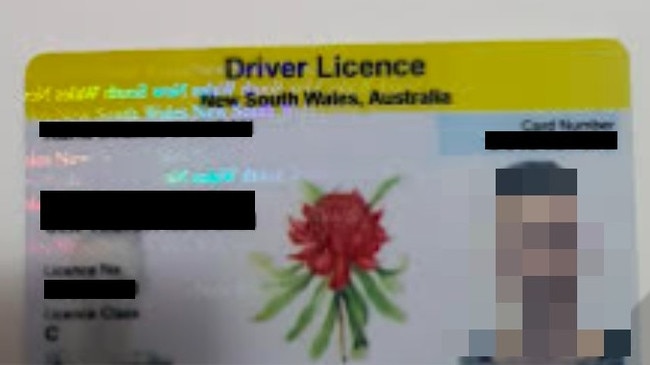Ordinary Brisbane dad-of-two spends his spare time scamming scammers
Overseas scammers thought this Brisbane dad was “dumb” and easy prey. Little did they know he was playing his own game that would cost them massively.
Money
Don't miss out on the headlines from Money. Followed categories will be added to My News.
Ben* seems like an ordinary Aussie, with a house in the suburbs of Brisbane, a wife and two kids and a long-term job in the IT industry.
But as soon as he clocks off from his 9-5 job, the dad spends most of his time in the evening fighting crime.
He is an online vigilante, making the lives of internet scammers a living hell.
“I’ve never been scammed but I do know a number of people who have,” the Queensland man, aged in his 50s, told news.com.au.
His vendetta began after a close friend was conned out of $6500 for a motorbike that did not exist.
Since then, for the past five years, Ben has gone after fraudsters.
“If (the scammers) are wasting my time, they’re not trying to scam some grandmother,” he told news.com.au.
“It is my mission at the moment to make their life a living hell, find their location, IP address etc and provide it to the contacts I have worldwide that also go after scammers so we can all troll the living hell out of the scumbag.”
Stream the news you want, when you want with Flash. 25+ news channels in 1 place. New to Flash? Try 1 month free. Offer ends 31 October, 2022 >

Ben has mostly battled with tech support scammers who pretend to be sweeping your computer for malware but are really just hijacking your system.
They often demand payment for their fake services through gift card serial numbers, so Ben was unable to track them down.
However, as the pandemic began, he noticed a new scam becoming more prolific among unknowing Aussie victims.
As loneliness set in against the backdrop of Covid-prompted lockdowns, people wanted pets, and scammers were more than happy to oblige.
“It’s an absolute gold mine,” Ben explained. “Tech support scammers never give their bank account but these guys do.”
Sometimes they even provide their phone numbers on the website and he is able to coax their real names out of them.
In the past five weeks, he has reported 39 bank accounts belonging to the scammers to Australian banks, with most of them being taken offline as a result.
“Most of my time after work is sitting on hold to banks,” he said.

“I’ve found the best method for this stuff is to act as dumb as possible, then (the scammers) let their guard down. Then you can socially engineer it,” Ben continued.
For instance, he photoshopped a bank transaction to a pet scammer, pretending money had left his account to go into their nominated bank account.
When the money didn’t go through, the scammer then sent him a screenshot of their own bank statements in return to prove they had not received his cash.
This allowed him to see their bank activity and he was able to see the names of the most recent transfers they had received who turned out to be victims of other various scams.
He is now in touch with three Australians listed on their bank account and stopped one from sending more money in a romance scam.

Ben brings his unique Aussie larrikin sense of humour to the situation.
Most of the scammers are really based in Turkey, Cameroon, Cyprus and Kenya, which he finds out by tracking down their IP addresses.
“Normally around 3am for them I like to call them and ruin their day,” he said with a laugh. “In Cameroon, normally in my lunch time break, I’ll get on there and wake them up.”
Ben spoofs and blocks his phone number so it can’t be traced back to him, as well as using Skype burner numbers when possible.
To be extra safe, he also uses aliases so that his real name is never compromised — and let’s just say they are quite amusing.
His fake names include: Mike Crotchburns, Anita Hanjorb, Chris Peacock, Cole Ostomie, Jenna Tull and Eric Shin.

In hilarious email exchanges seen by news.com.au, Ben kept a scammer on the ropes for weeks with his ridiculous requests when they were trying to sell him a bird.
They tried to get him to pay for a type of bird called a sun conure, to which he replied “I am interested in the conure, but do you have any that are not socialists, preferably a little right wing?”
When the scammer didn’t understand the question, he shot back with: “Do you have any Australian bin chickens?” — a colloquial term used for ibises.
The Cameroon-based criminal responded: “I’m selling two female Australian bin chickens and one male for $150.”
Ben’s final order was: “7 sun conures – 4 female, 2 male and 1 non-binary. 3 Australian bin chickens – 2 female and 1 male.”

When the cyber scammer asked him to pay through a bitcoin wallet, he had the perfect reply: “The bitcoin ATM at my local shopping centre is only for buying bitcoin, not sending it.”
This prompted the frustrated fraudster to provide their proper banking details — which Ben has since reported.
Disturbingly, however, the blockchain on the bitcoin wallet shows that just under A$170,000 has left the account — so clearly their ploys are working on some people.
The longest Ben has strung out a scammer is a month and a half.
“They get mad, there’s nothing more satisfying than getting them screaming at you,” he added.

Ben finds the scams in a number of different ways.
He is part of an online community of vigilantes who tip each other off about potential scammers.
In one eight hour period, members posted more than 100 “leads”. As one of the only Aussies in the group, Ben is more than happy to chase down any Australian-based scams.
He also easily finds fake online pet stores simply by typing in key words and clicking on the ads that appear on the first page of Google.
He then continues clicking on the link until their ad allowance runs out so others can’t fall for it.
Ben’s wife is big on animal rights and actively encourages him to “go after them”, he said.

Hoping to secure a sale, one pet scammer sent Ben a photograph of their driving licence.
It belonged to a NSW woman named Karla Duncan.
Last year, news.com.au reported on how Ms Duncan, a mum-of-four, had been tricked into handing over $7500 for a puppy that didn’t exist.
She was also coaxed into sending a photo of her licence.
Since then, it appears her identity was stolen and is being widely used in other pet schemes.
Ben suspects a lot of these scams are part of an organised crime ring as he has been given the same bank account on multiple occasions even though the scammers are from different parts of the world.
“There has to be someone in Australia that is co-ordinating this to be able to send this stuff overseas,” he said.

How to spot you’re being scammed
There are a few easy ways to spot a pet scam, according to Ben.
Using an email with just a “dot com” rather than a “dot com dot au” is a dead giveaway, as is listing a WhatsApp number on the website.
“That’s pretty much a red flag,” he said.
“Other things to look out for is poorly written English, pages that have Lorum ipsum on them and a site last updated 12 months ago but having 3 month old puppies still available.”
Sometimes the so-called business claims to be based in Australia even though he can see the website is hosted in Cameroon.
He advised reverse-image searching the picture of the so-called pet.
The latest statistics from the ACCC’s Scamwatch revealed that losses to scams increased by 50 per cent in January 2022, compared to the year before.
Australians lost more than $34 million to scams in January 2022, with 21,110 scams reported – an increase of 45 per cent from the previous month.
Last year, Aussies lost $323.7 million to fraudulent schemes in 2021, an increase of 84 per cent compared to 2020. A whopping 286,608 reports were made.
Have a similar story? Continue the conversation | alex.turner-cohen
*Last name withheld over privacy concerns.
Originally published as Ordinary Brisbane dad-of-two spends his spare time scamming scammers



